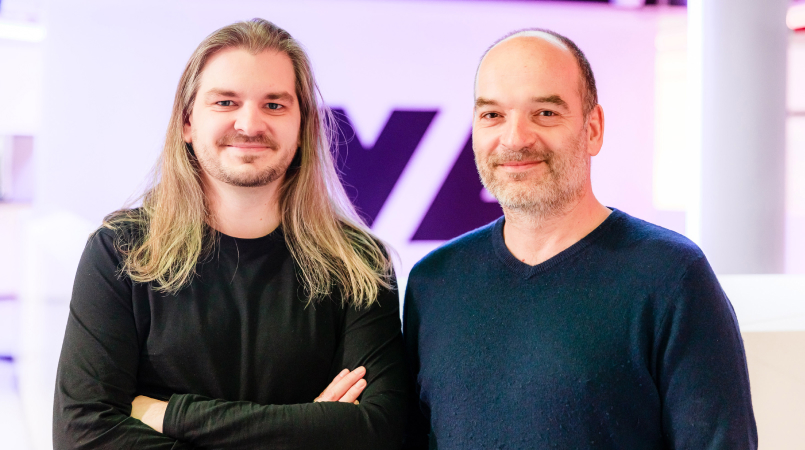The story begins in 2017, when then-esports journalist Dorian Gorr met serial tech entrepreneur Thomas Fellger in a Berlin coffee shop. A mutual contact in the city’s startup world recommended the two to each other for having a shared tendency for crazy ideas. The two would eventually transform a space—less than half a mile away—into a multi-floor gaming center, esports arena, and content studio.
“Think of it a little bit like Hard Rock Cafe meets Soho House, but for esports and gaming,” Gorr, now MD and chief marketing officer for VERITAS Entertainment, told The Esports Observer “A place where you know a little bit about what you get, you will always be a little bit surprised because each and every one of them is a little bit different to the one you knew before. You have a sense of belonging.”
The center and content fall under the LVL brand, which is already looking for expansion into Scandinavia, Spain, and South America. While the novel coronavirus (COVID-19) has delayed LVL’s grand opening, the vision for the venue remains. Nearly 50 open gaming PCs. A training ground for ‘local team’ G2 Esports. A burger restaurant, where your medium-rare order is ensured by a culinary robot.
“Back then, we thought about the concept of the venue, and it needed to feel futuristic,” said Gorr. “Even going to the restroom needs to feel special. I’m 100% serious.”
This side-serving of data comes courtesy of iconmobile, the tech innovation company of VERITAS’ chairman, Fellger. After going from scuba diving instructor to Japanese telecom NTT, working on the first phones with colored displays, he started iconmobile in 2003. This agency for digital transformation developed some of the first car interfaces with Audi, and a phone-connected toothbrush for Oral-B, to name a few products.

“When you work in innovation, then you suddenly think about the target groups. Who is adapting to these new things?” said Fellger. “If you’re not completely dumb, then the gaming and esports area, because there’s new people growing up here where they are not afraid of innovation.”
The catalyst for Fellger starting his company occured three years ago, when he questioned why his son spent so much time gaming, yet didn’t need an allowance. “He was a virtual arms dealer; he was selling weapons on Counter-Strike: Global Offensive,” he explained.
Skins—essentially weapon decals—are part of a large digital economy within CS:GO and other games. While controversial, these virtual goods represent just one aspect of gaming not well understood on a broader level. Rather than express shock at this discovery, Fellger saw business potential, and wanted LVL to provide a layer of translation. “We’re a bridge between the old and new world, when you think about it.
“[Japan was] leading the mobile phone experience. They did things we could not even believe were possible, and today they’re behind. Why? Because in Asia they’re great at building a technology infrastructure, but they lack a lot of creativity that this could just be the beginning, a platform for many other things.”
The LAN cafe is a major contributor to the success of esports in South Korea, Mainland China, and Taiwan, but keeping such businesses sustainable in western economies has been an uphill battle. Fellger believes the key is, like Google and Amazon before them, to find the melting point between digital and physical experiences. Gorr added that the placement of arcade machines and consoles upstairs, and PCs below, was deliberate.

“For us, it was about creating an experience from casual to hardcore gamers,” he said. “All are supposed to be comfortable here.”
Even VR, a largely dismissed commodity in esports, is present and was used by the children of VERITAS’ investors during their visits. According to Fellger, the company had overachieved its business plans, and while COVID-19 will disrupt margins just as with any startup, LVL has forged ahead by raising over €6K EUR ($6.5K USD) for hospital workers in Berlin through a charity stream with local Bundesliga club Hertha BSC.
“I’ve been a gamer my entire life, and gaming is always an increasing factor of the future of entertainment,” said Gorr. “Esports is the future of sports too. Not that we will kill sports, but it’s there among them.”


